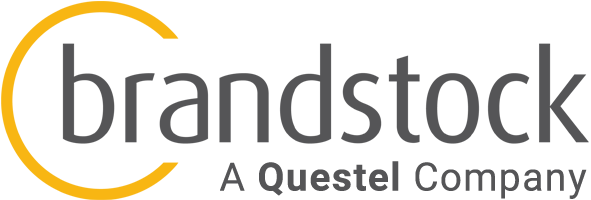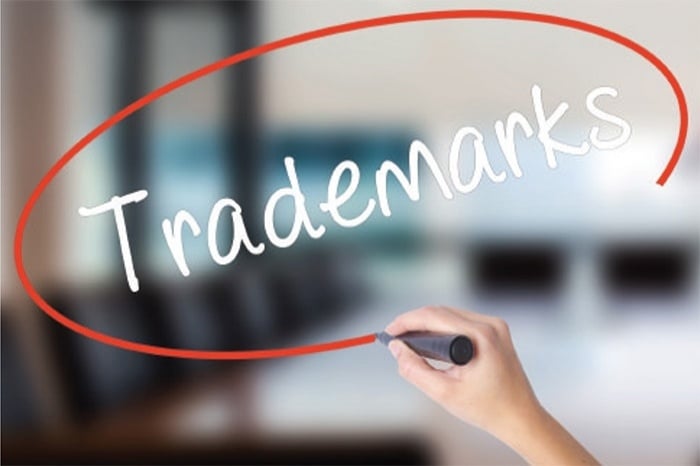By Volker Spitz, CEO, Brandstock
‘Agent benchmarking’ describes a service that we formed together with a group of large patent and trademark owners just over 5 years ago and which we have now refined to such an extent that we can deliver completed projects within 4 months, with average annual cost savings of up to 30 times the project cost and minimal demands on client time.
We have accumulated comparative data from some 2,000 law firms worldwide who work with more than 150 multi-national clients for whom we have carried out benchmarking projects.
The number of law firms we have benchmarked has grown only marginally during the last two years and we are therefore confident that we have succeeded in capturing all fee data for most firms that Industry is using globally.
Stop spending extra money on trademark assignment!
Download our free infographic and find out the correct fee for each country
What was once a costly rarity has now become accepted practice as IP owners look to maximise the utilization of their budgets for acquiring and maintaining their trademark and patent portfolios. We have seen demand for benchmarking increase steadily and do not expect that trend to change in the current economic climate.
Somewhat surprisingly perhaps, Brandstock remains the only provider of Agent Benchmarking services in the world today.
This short article provides a bird’s eye view of a complex exercise which we have simplified and streamlined to meet the needs defined, and deliver the benefits desired, by our clients.
The benefits of Agent Benchmarking
The primary benefits obtained from benchmarking are complete transparency and a consequent reduction in costs achieved without disruption of our clients’ existing agent network or relationships, many of which will have been developed over years. Reduction in costs allows budget allocations to be shifted elsewhere or pared down, according to our clients’ priorities.
Clarity with regard to fees charged, which can also be fixed for agreed periods in many cases, gives our clients greater certainty and therefore makes future budget preparation much easier.
Comparison of charges against what clients’ corporate peers are paying also provides clients with the confidence that they are paying a proper market rate for services and not unwittingly paying over the odds.
The origins of our Agent Benchmarking service
Since 2009, many trademark and patent departments have come under increasing pressure from various directions to bring costs down and General Counsel are constantly looking at outsourcing and off-shoring as a means to reduce headcount, and so reduce costs. We were asked to help develop a solution to the perennial challenge of cost reduction. Since fees charged by local law firms (‘agents’) form by far the largest part of any IP budget, the natural course of action was to look more closely at external expenditure on patent and trademark related services, i.e. agent fees and official fees charged by local law firms, and so to create a service we today call Agent Benchmarking.
What is our understanding of professional Agent Benchmarking?
When we talk about Agent Benchmarking we refer to an exercise which allows clients: a) to ascertain professional fees and official fees charged by their local counsel for certain patent and trademark related services; b) to compare those fees to data obtained from corporations belonging to their peer group; c) to check fees charged by local agents against the published official fees of all patent and trademark offices (‘official fees’) worldwide; and, finally, d) to ensure that our clients are paying fees well below the ‘market average’ and only ever paying the correct official fees, i.e. official fees without any mark-up applied by local counsel.
Which tasks performed by local law firms are covered by Agent Benchmarking?
Our proven process addresses costs associated with specific patent and trademark related tasks we describe as ‘commoditized’ i.e. tasks for which the processes involved are well and narrowly defined and for which local agents commonly offer set fees e.g. patent drafting; filing of patents and trademark applications; translations; trademark and prior art searches; examination procedures; dealing with objections; renewals; etc. These fees comprise professional charges and official fees charged by national patent offices. Only fees for such ‘commoditized’ tasks can be readily benchmarked as their parameters are more precisely defined than is the case, for example, with litigation.
The costs we benchmark commonly make up the lion’s share of our clients’ IP budgets and yet are seldom scrutinized. Surprisingly perhaps, there are considerable variances in fees charged and, without exception, our clients have found that in many countries they have been paying more than their peers for the same services.
How to benchmark local agent fees
Step 1: Ensuring absolute transparency
Once we have a list of a client’s local agents, with the relevant contact information, we send a joint communication to all the firms concerned advising them of our engagement and explaining the process we follow. Each firm is provided with secure access to our proprietary online platform where they find comprehensive data entry forms and guidance as to how they should be completed. Our goal is to collect particulars of all professional and other fees currently charged by individual local law firms to specific clients, taking all applied discounts into consideration.
Within merely 3 weeks we are able to provide our clients with a detailed report which includes all the information needed to decide on the next steps. Clients can see exactly what they are being charged by each firm, for each service category. They can also see fees paid by members of their peer group, corporations of a similar size and with a similar IP portfolio, to the same law firms or firms of comparable quality. Clients can also see and compare true official fees against what they are actually being charged. Fees paid by others are grouped into highest and lowest fees paid, before and after negotiation; our report also shows the average fees paid by others which we term the ‘market average’ or ‘market price’. All data are anonymized; confidentiality obligations and data protection laws are strictly observed.
Clients will likely see that they are paying more than corporations of similar scale while providing similar amounts of work to the firms involved; in a good number of countries they will also see that they have been overcharged in respect of official fees, which generally comes as an unpleasant surprise.
Step 2: Defining ‘target’ fees
Having delivered our report, we meet with our clients, usually for no more than 3 hours, to discuss the results and how they wish to approach the next phase of the project. Drawing on our considerable experience, and close knowledge of the law firms involved, we help our clients to settle on ‘target’ fees, i.e. the charges that they would like to see agreed with each firm; these are invariably below market average. We generally recommend what we believe to be achievable target fees, based on results from previous benchmarking projects, and then lead the fee negotiations towards those objectives. Consequently, clients know the potential savings before we even begin negotiations with their local counsel.
Step 3: Negotiation
We then negotiate with the firms involved on behalf of our clients to agree those target fees. We bring the results of our negotiations back to a second, and usually final, meeting at which clients decide whether to accept the new charges proposed; if further negotiations are required in some cases we can usually close those off very quickly. In most benchmarking projects we have been able to achieve overall reductions in agent fees of between 30% and 45%; this is in addition to the savings achieved as a result of doing away with official fee mark-ups. This tried and tested negotiation process usually takes no more than 2 months to complete.
Can a benchmarking project be carried out independently?
IP departments, even when supported by their procurement or legal operations departments, find it difficult to handle a benchmarking process by themselves. Simply gathering details of current (and correct) official fees, and keeping that information current, is a Herculean task beyond the resources of most in-house departments.
Local law firms do not voluntarily give up information with regard how they charge other clients and without comparable data there is simply no basis from which to start negotiations. Thanks to the many projects we have carried out for clients we have been able to accumulate the data that is otherwise inaccessible.
While we would not wish to suggest that clients could not carry out their own benchmarking exercises, we hope this article might persuade clients that they would be better served by making use of our proven, and genuinely unique, Agent Benchmarking service.
What comes after an Agent Benchmarking project?
Many of our clients have gone on to retain us to put in place Service Level Agreements to formalize performance expectations and agreed fees; complemented by a process to monitor invoices from local agents and to reject those that are incorrect. Some have also chosen to consolidate and optimize their agent networks, again drawing on our experience and processes to achieve their desired outcomes.
We are constantly testing the boundaries and barriers to transparency on behalf of our clients, providing them with the ability to make informed choices and, with that, real control over their agent networks and budgets.




























